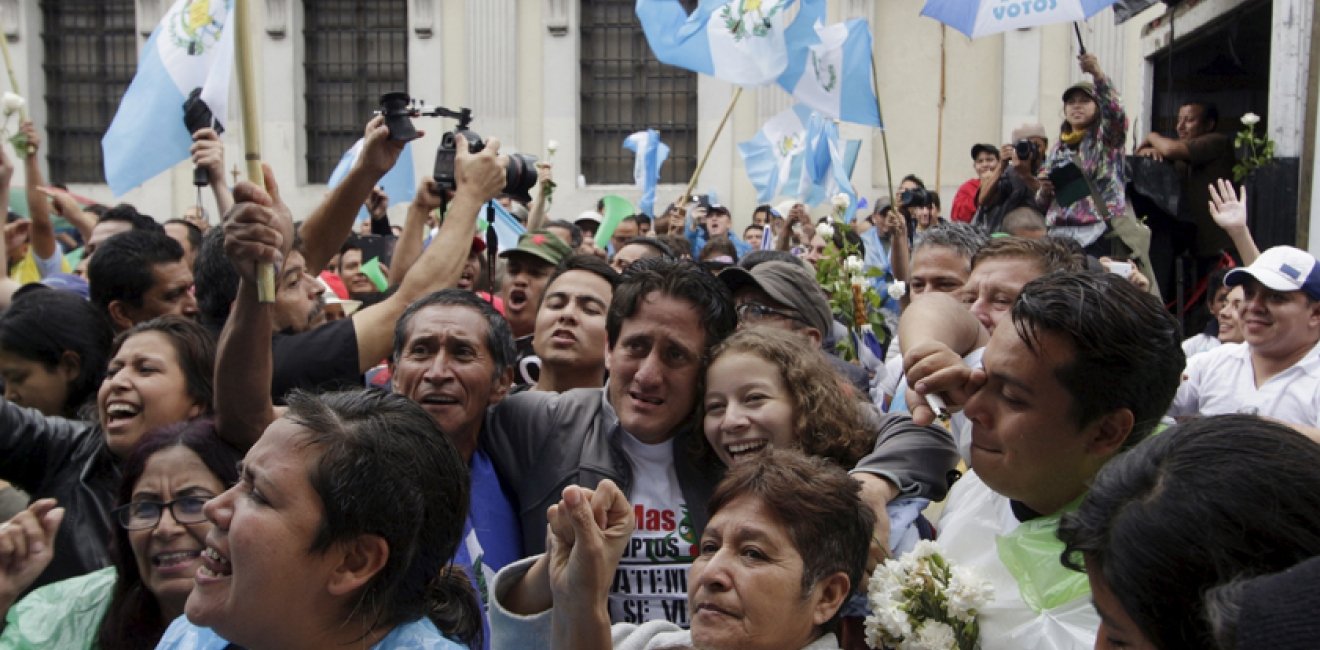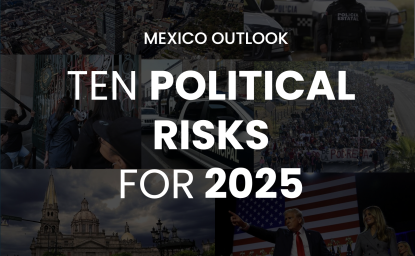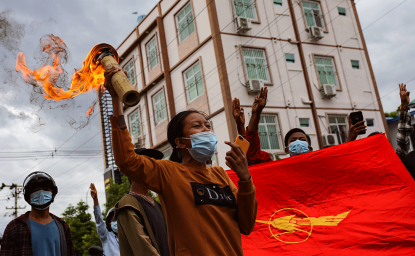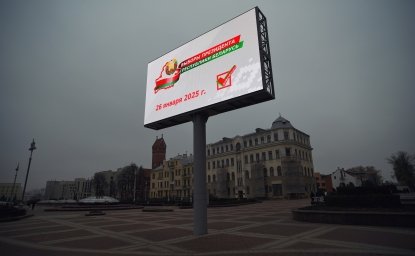Late afternoon on September 1st, 138 members of Guatemala’s congress took the historic step of stripping troubled President Otto Pérez Molina of his legal immunity and set in motion a process whereby a Guatemalan tribunal can begin to investigate corruption charges against the President. The President stands accused of leading a network of corrupt officials that accepted bribes from businesses in exchange for avoiding customs duties. The charges stem from an extensive investigation conducted by the country’s Attorney General and a unique UN-backed investigative commission, known as the International Commission against Impunity in Guatemala (CICIG), established to fight impunity in the country.
Here are a few takeaways from this historic decision:
- Never before has a sitting President of Guatemala faced such serious charges. Former presidents have been tried and jailed, and sitting presidents have faced rumors of corruption, but this is unprecedented. It sends a signal that corruption, even by a head of state, will not be tolerated.
- The role played by the Guatemalan people is also unprecedented. Since it was first revealed in April that senior administration officials, including the Vice President, where likely involved in the scheme to defraud the government, ordinary Guatemalans took to the streets to demand accountability. And while public protest is not new, the fact that these protests included the broadest cross-section of society – from poor farmers, to laborers, to Mayan Indians, to the normally status quo oriented middle class professionals and small business owners – suggests that Guatemalans across ideological, class, and racial lines were profoundly disturbed by the allegations.
- It is noteworthy that the country’s civilian police and military did not meet the massive public protests with harsh repression. Historically, the military has been an agent of repression against any protest that threatened the county’s leaders – whether elected or imposed. A United Nations body found that a military junta led by General Efraín Ríos Montt had carried out genocide against the Ixil Mayan people in the early 1980s. Since President Pérez Molina is a former army general, many assumed the military would come to his rescue by shutting down the protests or helping him find a decorous way out of the country. Yet, in this case, neither the police nor the military sought to repress the public’s protest of calls for the President to resign. Why they did not is intriguing. Maybe the corruption exposed was so grievous and embarrassing that the military did not want to be tarnished by the entire mess. It is also possible, albeit optimistic on my part, that the military has finally turned the corner and is willing to allow democratic institutions – Attorney General (AG), courts, and Guatemalan Congress – as well as society at large to decide on the country’s future peacefully without interference from the military.
- Despite problems of corruption and state capture by organized crime, Guatemala’s democratic institutions appear to be working. I see four elements that may have contributed to this:
- The U.N. anti-impunity body (CICIG) has played a critical role for several years by strengthening the capacity of successive Attorneys General. The current and former AGs have both conducted serious investigations into crime and corruption with the help of CICIG, which provided both technical investigative expertise and a subtle but important political buffer for the AGs that allowed them to resist the usual pressures to protect the interests of the political and economic elite as well as organized crime.
- The overwhelming public outcry made manipulation of the legal process, especially in congress, unviable.
- The fact that the international community - especially the United States, which is considering a major aid package for the region - was closely monitoring developments there further enhanced the ability of Guatemalan institutions to withstand pressures to turn a blind eye.
- The role of the press, especially independent investigative journalists, further helped inform the public about the depth of the corruption and gave ammunition to those calling for accountability.
- The events unfolding in Guatemala also have implications for the rest of the region and the United States in particular. Guatemala’s neighbors – Honduras and El Salvador – are struggling with their own challenges of corruption, weak government institutions, and extreme violence. Guatemala is now beginning to demonstrate the importance of building strong institutions as a first step towards combating corruption and criminal penetration of the state—necessary steps for ending impunity, defeating criminal networks, and reducing violence.
Despite problems of corruption and state capture by organized crime, Guatemala’s democratic institutions appear to be working.
The Obama Administration has put forward an ambitious plan for addressing many of these same problems throughout Central America. Congress has been rightly skeptical of these goals because of widespread corruption. If Guatemala is able to demonstrate its ability to hold its authorities accountable, including possibly the Vice President and President, then there is reason to believe that additional international support for democratic institutions is worthwhile as long as these efforts strengthen the rule of law and guarantee space for public engagement on the streets and through an independent media, and not just at the ballot box.






